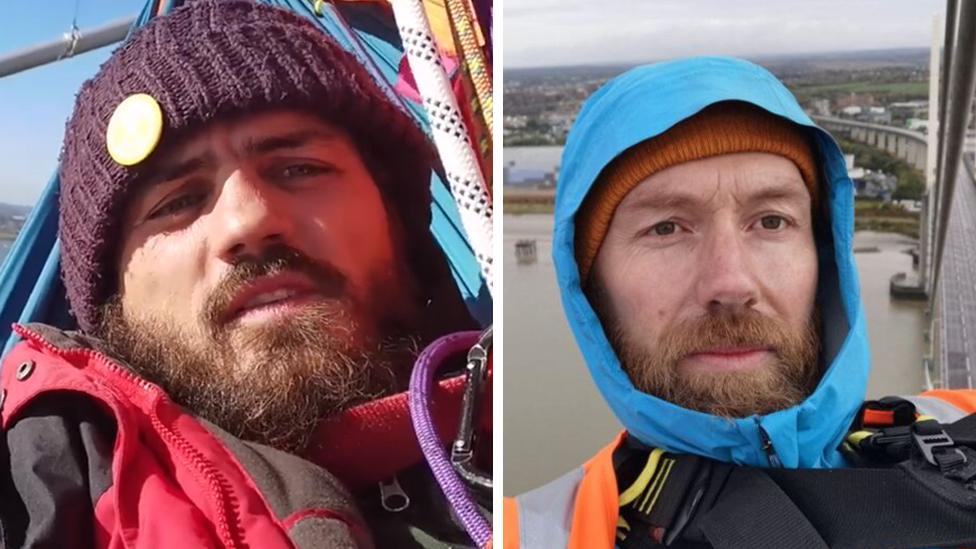Archive photos mark 60 years of Dartford Crossing
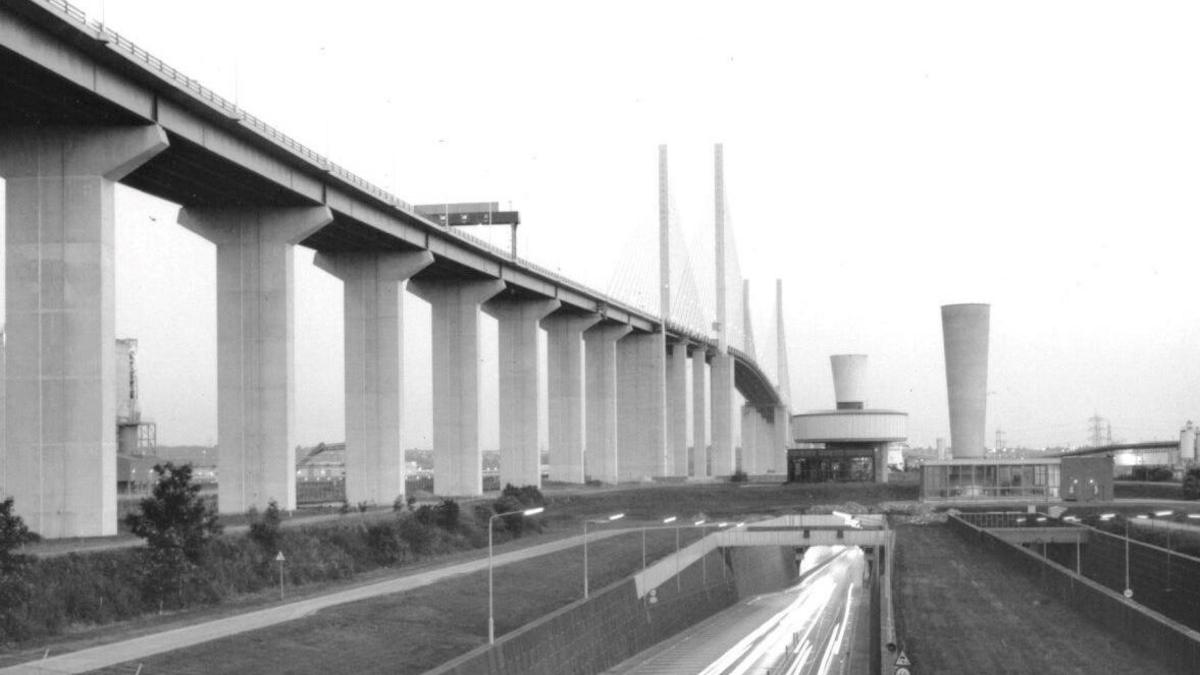
The crossing has two tunnels and a 2.9 km (1.8 mile) long bridge
- Published
Archive photos of the Dartford Crossing have been released to mark 60 years since it first opened.
The crossing, which links Essex and Kent, remains the only road across the River Thames east of London.
More than a billion vehicles are thought to have used the crossing since the first tunnel opened on 18 November 1963, National Highways said.
The 60-year anniversary was marked by ten classic cars travelling through the tunnel on Friday.
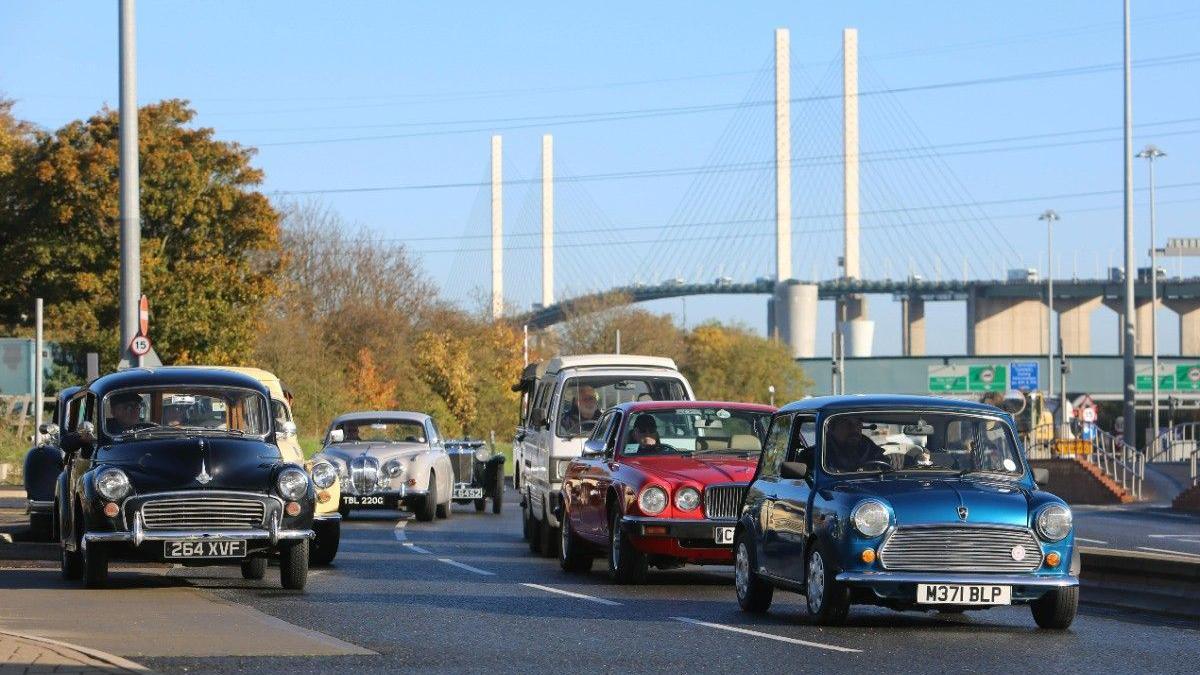
Some of the classic cars date back to the 1930s, before the crossing was built
National Highways, which manages the crossing on behalf of the Department for Transport, said the idea of a tunnel connecting Kent and Essex was first conceived in 1926.
Works started in the 1930s but were suspended due to World War Two.
Before the crossing opened, anyone wanting to travel between Kent and Essex had to take a ferry or use the Blackwall tunnel.
The crossing is now considered one of the UK's most important transport routes, carrying more than 50 million vehicles a year – about 180,000 a day.
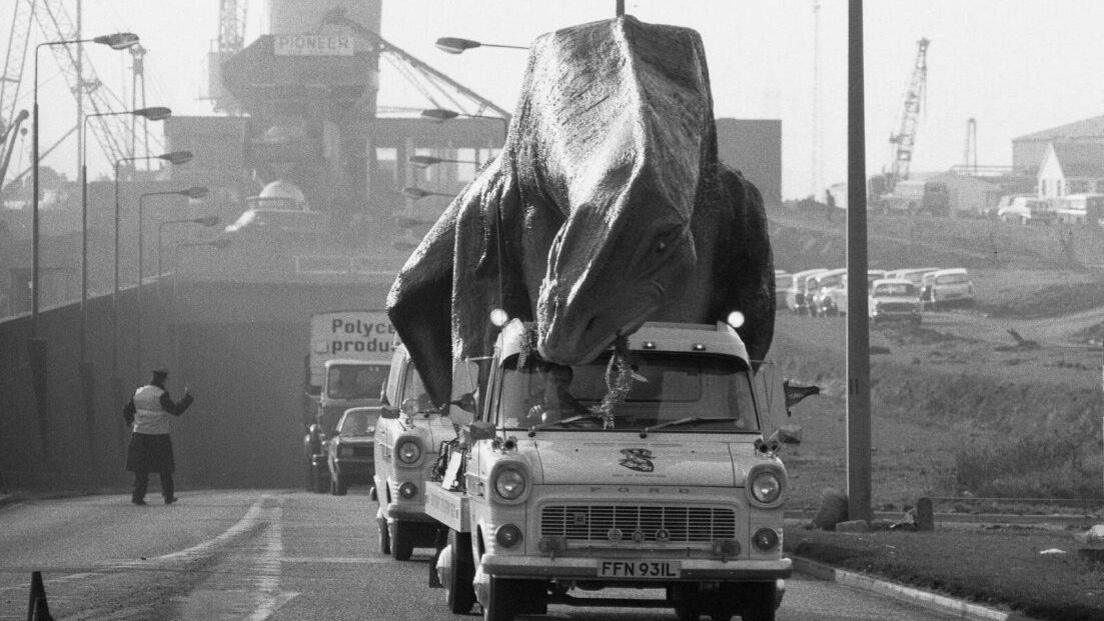
A 45ft (13.7m) long dinosaur travelling through the Dartford tunnel in January 1973
Francis Cluett, head of delivery at National Highways, said he thought it was important to mark Saturday's anniversary.
"It was an amazing engineering achievement at the time," he said.
"The tunnel has provided vital connections between people, jobs, and businesses for 60 years."
National Highways said the crossing was initially designed to carry about two million vehicles each year.
However, due to increasing demand, an additional tunnel was constructed, which opened in 1980, and the Queen Elizabeth II Bridge opened in 1991.
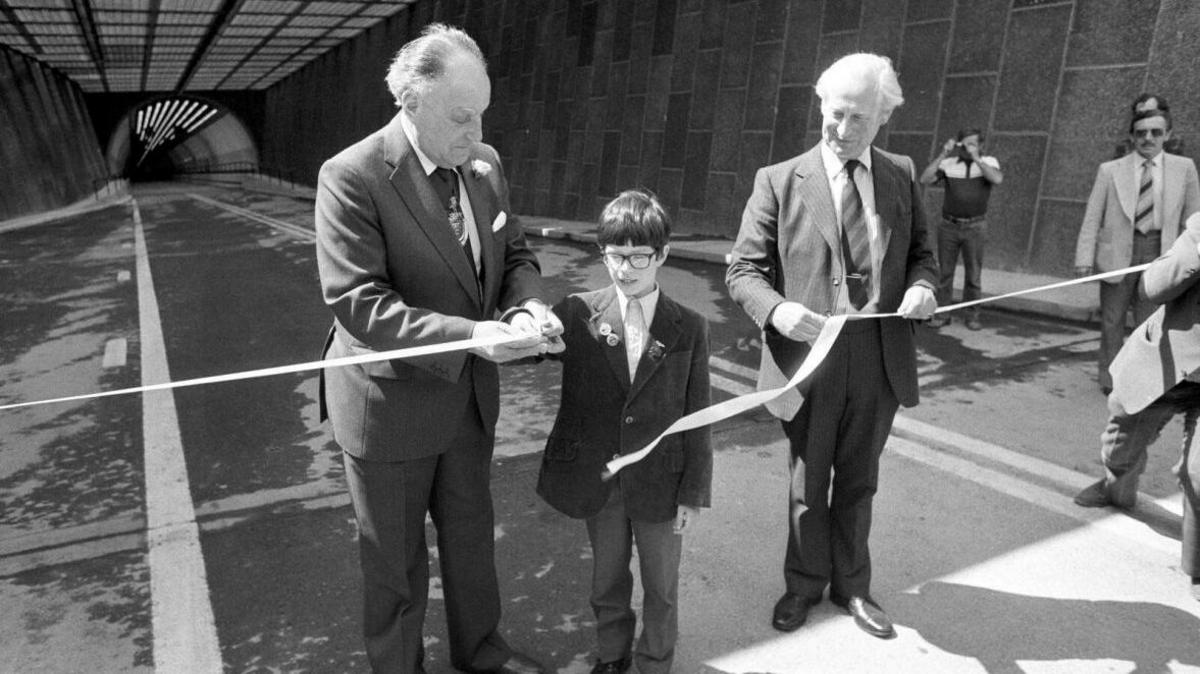
Glen Martin, 9, officially opening the second Dartford Tunnel by cutting a ribbon
The RAC said motorists using the Dartford Crossing were always required to pay a toll, which in 1963 cost two shillings and sixpence, external.
In 1999 it was announced that the crossing would be free by the end of 2003 - however two years later, ministers backtracked on the agreement.
Today, the Dart Charge is between £2 and £6, external, depending on the vehicle, and free to use between 22:00 and 06:00 GMT.
Before 2014, fees were paid at booths, often causing long delays. But since then motorists have been able to pay online, over the phone, by post or at Payzone retailers.
Those that do not pay face being fined.
Earlier this year, a new online payment system for the Dart Charge was launched which caused issues for motorists following a "technical issue".
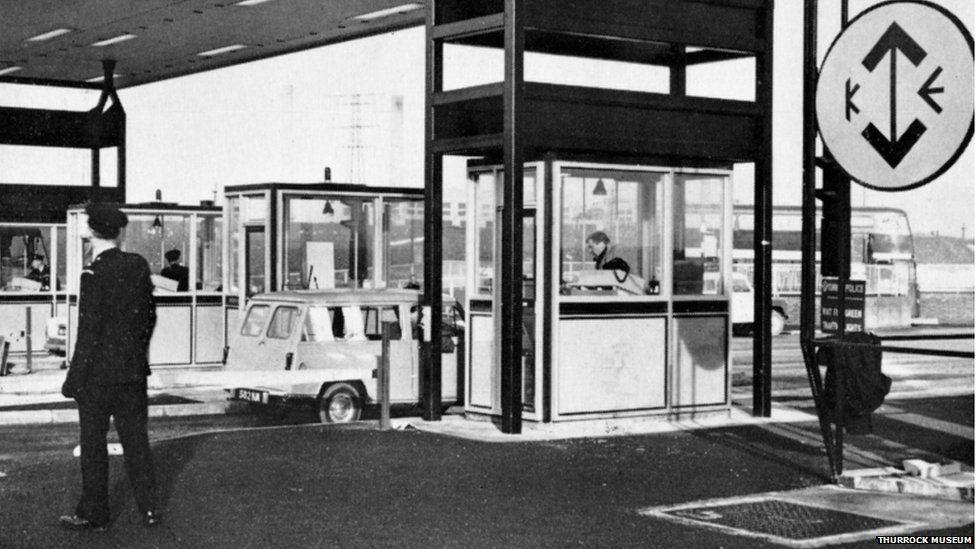
Toll booths were eventually scrapped in 2014
National Highways is now proposing to construct a new road and tunnel, the Lower Thames Crossing, to almost double road capacity across the River Thames east of London.
The project's detailed examination by the government's independent planning team is under way, and if approved, construction could start in 2026.
Conservative councillor and leader of Dartford Borough Council, Jeremy Kite, said: "Today, as vehicle sizes and traffic volumes increase, Britain needs to show similar vision and get on with a new Thames crossing east of Dartford to relieve the pressure here and put the region's economic potential back on track.
"It's time to get things started safe in the knowledge that we are doing the right thing for future generations."
Follow East of England news on Facebook, external, Instagram, external and X, external. Got a story? Email eastofenglandnews@bbc.co.uk, external or WhatsApp us on 0800 169 1830
Related topics
- Published10 October 2023
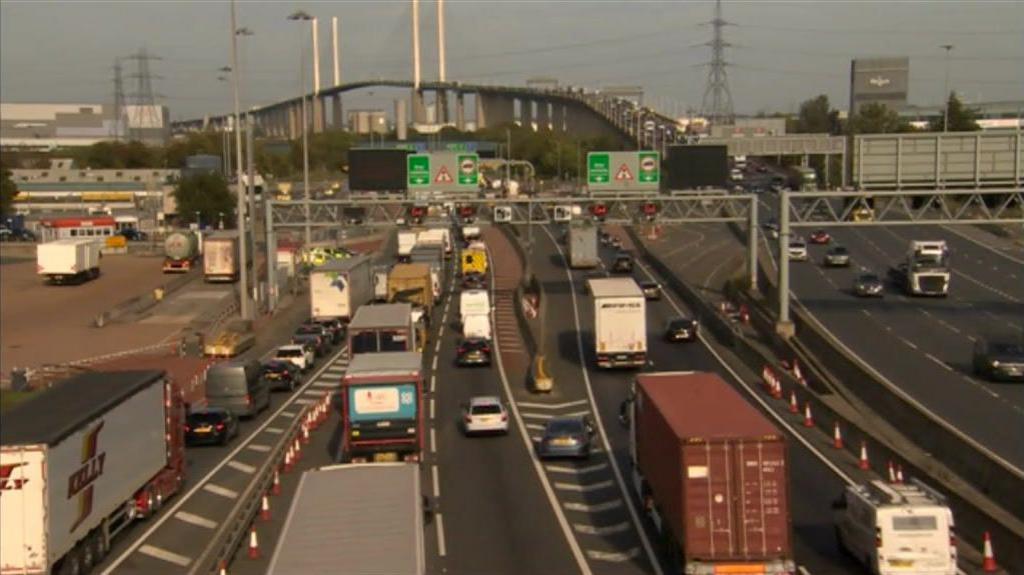
- Published20 June 2023
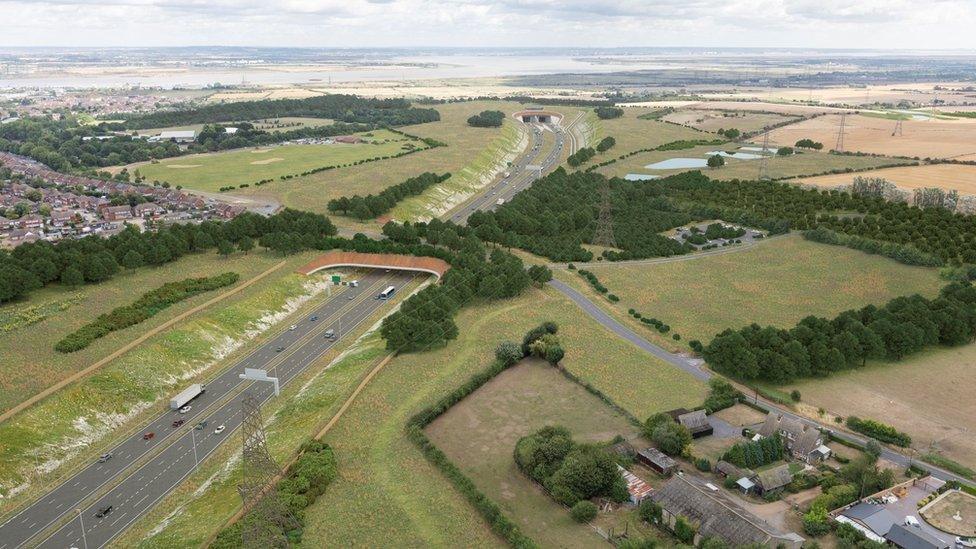
- Published21 April 2023
